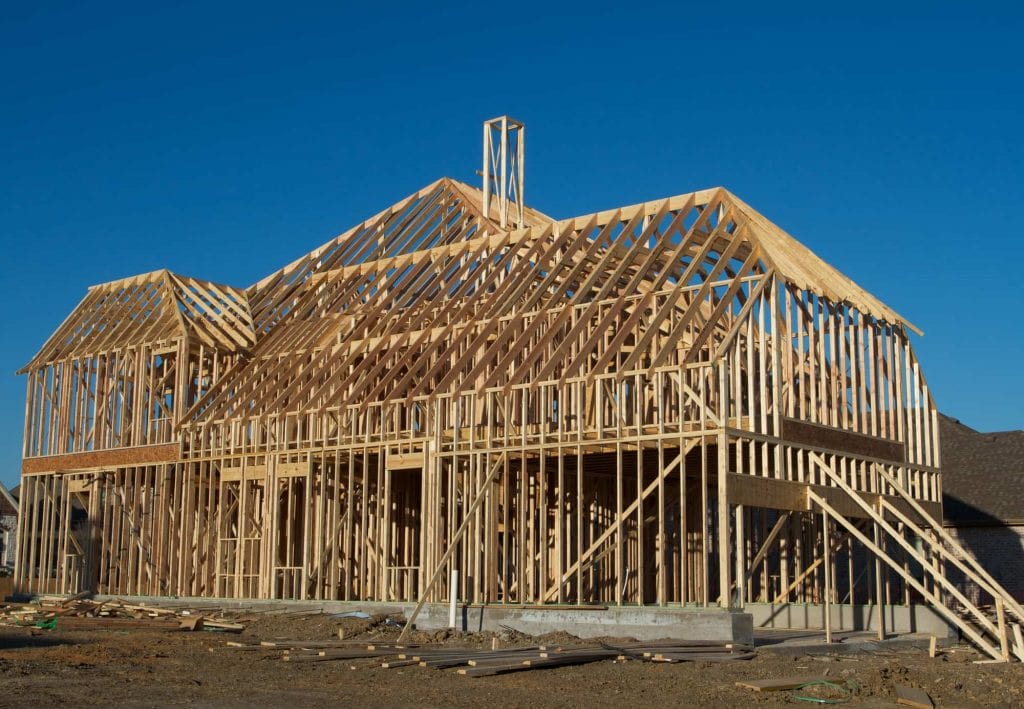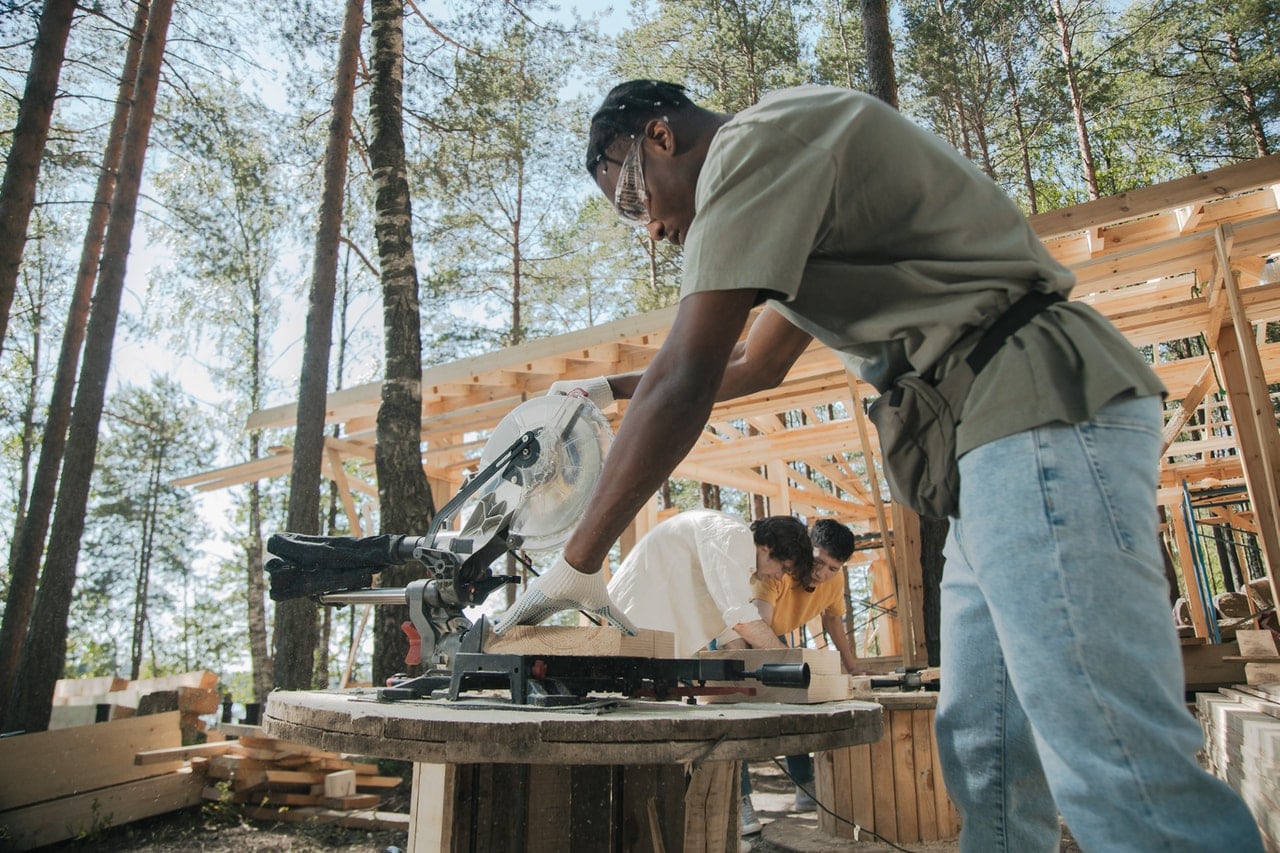To read this guide in Español, please visit https://exprealty.com/guides/deberia-construir-mi-propia-casa/
It can be a very rewarding experience building your own home, but it’s important to know what you’re getting into. In this blog post, we’ll explore some of the pros and cons of building your own home so that you can make an informed decision. Whether you’re looking to buy property for sale in Tulsa, OK, Tucson, AZ, or anywhere else in the United States, keep reading to learn what’s involved in building your own home and determine whether it’s right for you.
What Are The Benefits of Building Your Own Home?
There are several positives that make building a home worth it.
- Getting What You Want– There’s nothing quite like living in a home that matches your personality and style and being the first person to live there. This alone can be the solidifying reason people decide to build, but there are other factors too.
- Better For You– A new home has Energy Star appliances, and more efficient plumbing and electrical or greener, making them better for a home over time. Older homes, especially those built before 1978, can have harmful materials like lead paint and asbestos, or mold.
- Better Resale Value– Though building your own home will cost you a lot of time and energy you could make substantial money from the resale of your new home. Newer homes appeal to homebuyers because they’re usually still in good condition, requiring fewer repairs and the upkeep isn’t as much as an older home.
- Less Competition– In a fast-paced market it can be hard to buy a home you’ll truly be happy with. Just about any new listing, whether it’s a home for sale in Plano, TX or anywhere else, will have multiple offers within a day or two of hitting the market. Building a home, especially if you already own the land, will keep you from a bidding war on a home you may not really want.
What are the costs of building your own home?

The cost of building a home is an important concern and one that shouldn’t be taken lightly. Knowing the costs and setting a budget, whether through a construction loan or paying out of pocket, is vital in making sure you don’t get in over your head. Here’s a birds-eye view of things to consider in the cost of building your home:
- Securing loans– If you need to borrow money for the construction of your home, unless you can obtain a construction to perm loan you may need multiple loans. Each loan will have its own fees attached to it.
- Excavating– Whether you own a flat piece of land or uneven terrain, you’ll need some sort of dirt work done. It may be carving out a side of a hill or simply bringing in dirt to raise the home for water drainage, but this must be done before any construction can begin.
- Permits and Utilities– Whether you’re buying an existing home for sale in Arkansas, building a new one in West Virginia or somewhere else, there are always utility connection fees. Depending on if and where you’re building will determine the permits you’ll need. Different states have different rules about things. Even well water sometimes needs a permit in some states.
- Building materials– From the concrete to the shingles and everything in between, these items cost money. You may be surprised by the price of some of these, but you’ll want to go line by line and get estimates on everything.
- New Appliances– A new home calls for new appliances! The price range for these varies depending on what you’re wanting.
If you’re building a new home, you’re likely to sub out the work to different contractors. Oftentimes, the price of materials is factored into the contractor’s bid price. You’ll want to double-check this.
It may be a good idea to add some cushion to your budget in the event something winds up costing more than you expected.
How long does it take to build a home?
In a perfect world, you could build a home in five months after breaking ground. These days that’s not realistic. There are many variables that may slow the process of construction. Here are a few things to consider:
- Weather
- Contractors loaded with work requiring a waitlist.
- Materials not available and on back order
It’s still a good idea to create a schedule with a date to aim for completion, or at least have an order of events planned, but keep in mind things can get delayed.
What are the risks and challenges associated with building your own home?

While there are a few positives to building your own home, it’s important to be aware of the cons too. Since you will be generally aware of these, many of them you can prevent. As long as you’re mentally prepared for the hurdles you may need to jump through, these negatives will just be a part of the obstacle to get to the sweet reward of completing the construction of your home.
- Over Spending– We’ve mentioned costs before, but it’s imperative we mention it again. Especially in these times when the prices of everything are going up, the prices you were initially quoted may have gone up by the time you’re ready to build. Be prepared for inflation as well as any other unforeseen hiccups that may require more money.
- No Guaranteed Set Schedule– We’ve touched on this one too, but if you like to plan it’s important to be aware of the reality that changes in a schedule are inevitable; a contractor runs longer on another job, which makes them late for yours, waiting for all the parts to come in, or raining for a week straight can also cause delays in construction.
- Banks Not Wanting To Lend Money– Construction loans are already risky, therefore, it’s very common for banks or lenders to be unwilling to agree to a construction loan without a licensed builder overseeing the project. The good thing is, securing funding is one of the first steps so it’s not like you’d get far into construction before finding out you don’t have the funds.
- Trouble Refinancing Construction Loan– Most construction loans have a deadline of when a home should be completed. If the home isn’t built within this time frame (usually 12-18 months) this will cause issues with transitioning a construction loan into a permanent mortgage.
- Construction Complications– Issues may arise that will require you to get creative on fixing. For example: Say you told the bricklayers you wanted a German schmear finish over your brick home. You drive by the site after work one day to see how they did and it looks nothing like you imagined. You either pay to tear down and replace the brick, or you may decide to learn and figure out a way to fix it yourself.
- Failing Local Code– Where you live will determine the requirements needed to meet the code. It could have to do with plumbing, electrical, or even something like how far apart the spindles on a staircase are spaced. Learning what your area’s codes are will help prevent you from failing code, but sometimes things can still go unnoticed.
- Subcontractors Unwilling To Work– Sometimes it can be hard to find subs willing to work with an owner-builder, usually because they’ve come across other owner-builders that don’t know what they’re doing or fear that the project wasn’t budgeted correctly. They may think the inexperience will make their job harder and/or they’re afraid they won’t get paid. When bidding your work out at the beginning of the process, not only will you get an estimate, but this will help secure subs.
- Sketchy Contractors– On the flip side of contractors being unwilling to work with an inexperienced owner-builder, there are sketchy contractors who will take advantage of the owner’s lack of knowledge or simply just do a halfway job to get paid and get out of there. To help prevent this, ask around for referrals on trusted subs.
- Mechanic’s Liens– Unfortunately this can happen if a contractor believes they weren’t paid the full amount owed. There are a few reasons this could happen: inflation costs of materials, the sub not doing the job correctly but still thinks they should be paid, or for some other reason the contractor and owner-builder don’t see eye-to-eye.
How do I find a contractor to help me build my home?
While there are people who will build their own homes, most people will opt to hire a contractor to oversee the project. If this is you, you’ll want to seek referrals for trusted builders. You can ask your real estate agent who will help you buy the property you plan to build on, your lender, or even a home inspector. However, be sure to ask the right questions before hiring a real estate agent. All of these professionals usually have established working relationships with builders and will know who the trusted builders are. It’s also a good idea to interview a few licensed builders and seek out bids to see which one will be a good match for you.





